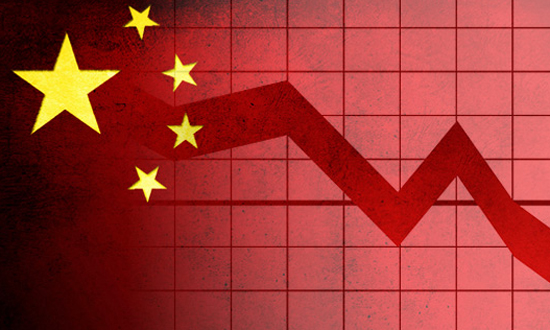
US$3 trillion was wiped off the Shanghai and Shenzhen stock exchanges in June and first week of July 2015. The Shanghai exchange had risen 135% in a year and fell 30%. The Shenzhen exchange rose 150% and fell 37%. 11% of China’s 443 million households are reckoned to hold shares. The Chinese government encouraged people to gamble their savings on the stock markets: ‘4,000 [points on the Shanghai Corporate index] was just the beginning’, said the Chinese Communist Party newspaper People’s Daily in April. Dreams of quick and effortless money crashed into bitter recriminations: ‘I have lost two-thirds of my money…I really want it back and when I get it, I will never invest in the stock market again.’ A pensions expert at the Shanghai Institute of Finance and Law explained, ‘Old people often don’t understand economics. They are easily duped.’ The stock market crash demonstrates that China is not immune from the crisis of international capitalism and the credibility of the Communist Party and the Chinese state is now threatened.
Deng Xiaoping proposed the creation of two capitalist stock exchanges in the 1980s and Shanghai and Shenzhen were duly opened in 1990. By May 2015 they had a market capitalisation value of $7.7 trillion and together with the Hong Kong exchange constitute the second biggest stock market in the world, after New York but ahead of London. Their growth manifests the intrusion of capitalism into state ownership and socialist development. On becoming leaders in 2013 President Xi Jinping and Premier Li Keqiang pledged to allow the market to play a ‘decisive’ role in the economy. The stock markets were used to raise funds for the state by selling shares in state owned businesses. Since November 2014 four cuts in interest rates plus a reduction in the reserve asset ratio that banks must keep back fuelled lending to buy shares. As share prices soared the Chinese government saw an opportunity to sell shares in debt-burdened state companies and so clean up their accounts.
Brokerage houses sprang up in cities across China. Increasingly people borrowed money to buy stock using previously bought stock as collateral, this is called margin buying. For as long as share prices keep rising there seems to be no problem as shareholders sell their stock to repay the loans and make a profit. If the flow of loans into the market slows, share prices will fall and shareholders receive a margin call from brokers to deposit more money in their accounts or sell their stock to repay the loans. If everybody sells, prices collapse and fear takes a grip. With shares being pledged as collateral against bank loans there is a risk of brokerage and banking failures.
Stocks began tumbling on 12 June 2015 when authorities began to crack down on margin lending. However, beneath the financial gyrations of the stock markets and soaring share prices, China’s economy was slowing down. Gross domestic product is growing at 7% per annum, the slowest rate in a quarter of a century; retail sales, industrial production and fixed-asset investment have all fallen since 2013. Chinese corporate debt has risen to 160% of GDP.
China has the second biggest economy in the world, but on some calculations it is the biggest; what happens to it has global consequences. China buys about half the world’s iron ore, copper and coal exports. Iron ore prices fell 11% in one day in early July, iron ore prices are down nearly 40% since the start of the year, copper prices on the London Metal Exchange fell to their lowest level since 2009 and share prices of the mining multinationals Rio Tinto and Glencore are down sharply.
With foreign investors taking their money out of Hong Kong, Chinese state-owned banks spent $209bn trying to prop up share prices. To stop the rout, directors and shareholders with more than 5% stakes in companies were banned from selling shares, state-owned enterprises were stopped from trading shares, over half the companies listed on the stock exchanges suspended trading and the police were called in to investigate ‘malicious short selling’. Journalists have been instructed not to use phrases like ‘equity disaster’ or ‘market rescue’. No doubt scapegoats will be sought. A Chinese proverb says that he who rides a tiger is afraid to dismount. When China started down the capitalist road to development, chaos beckoned and without turning to socialism, only more capitalism is provided as the solution. The Shanghai and Shenzhen stock markets still have a long way to fall and the Party leaders, whose credibility depends upon steady economic growth and rising consumption, are being undermined by the very market forces they have unleashed.
Trevor Rayne




